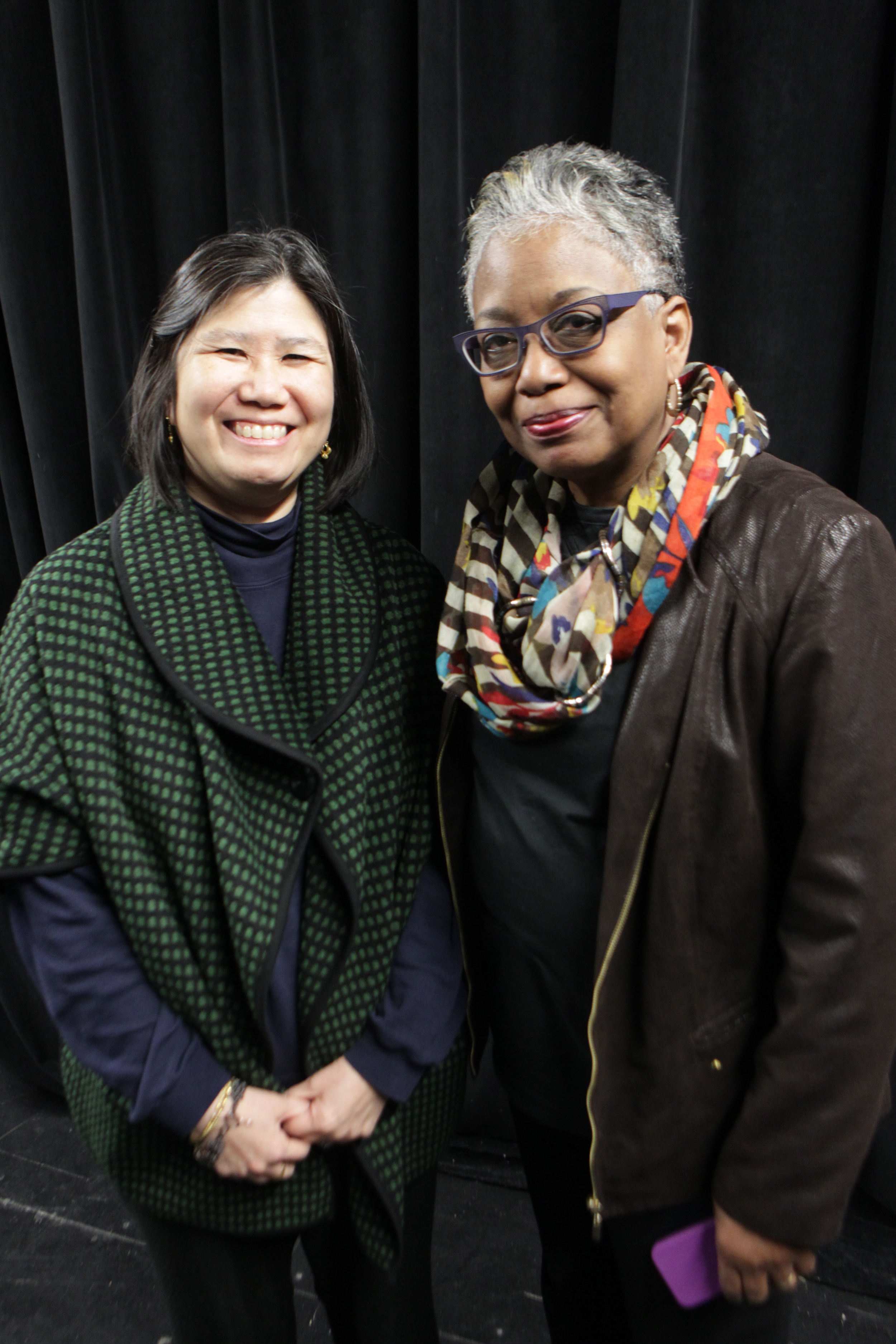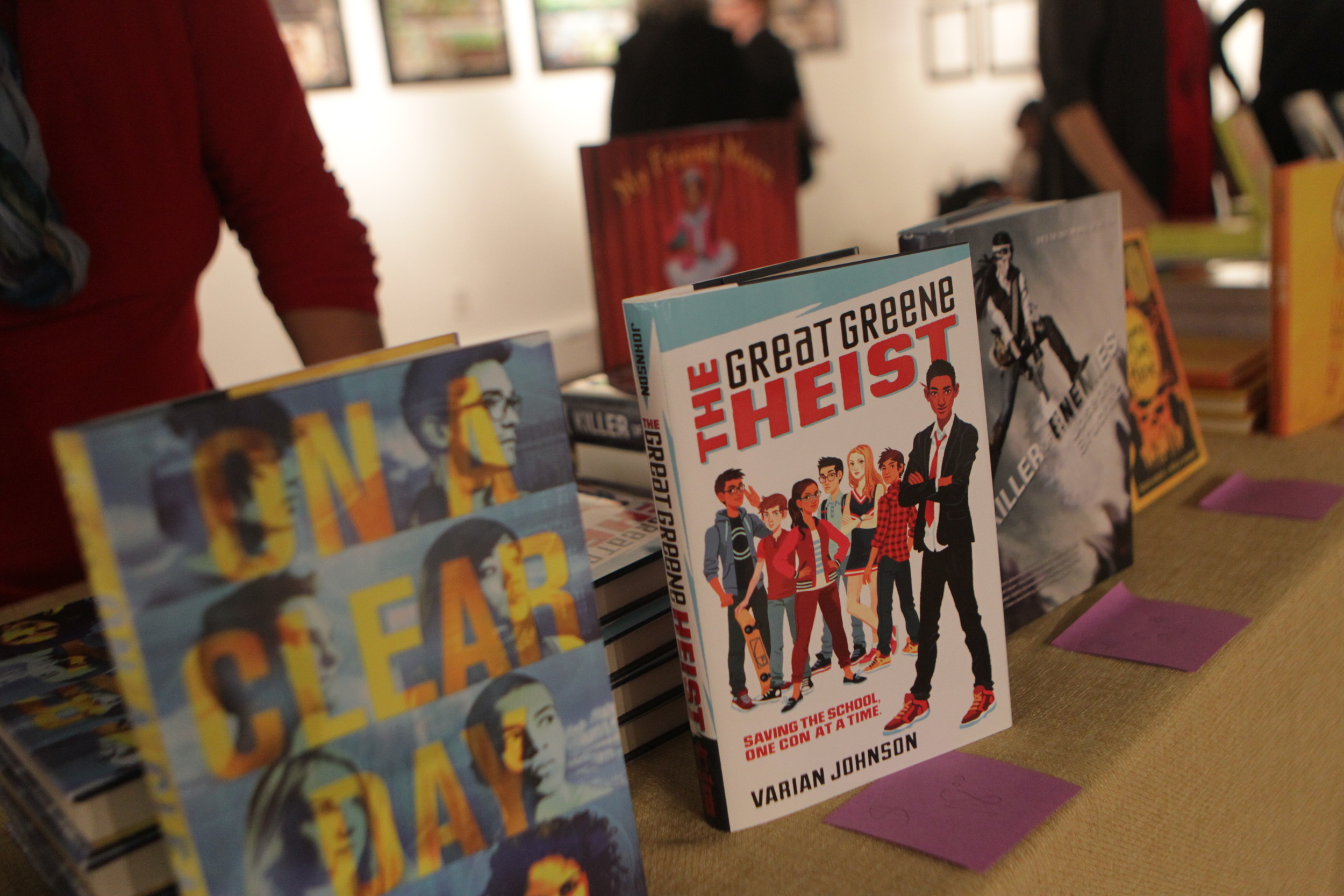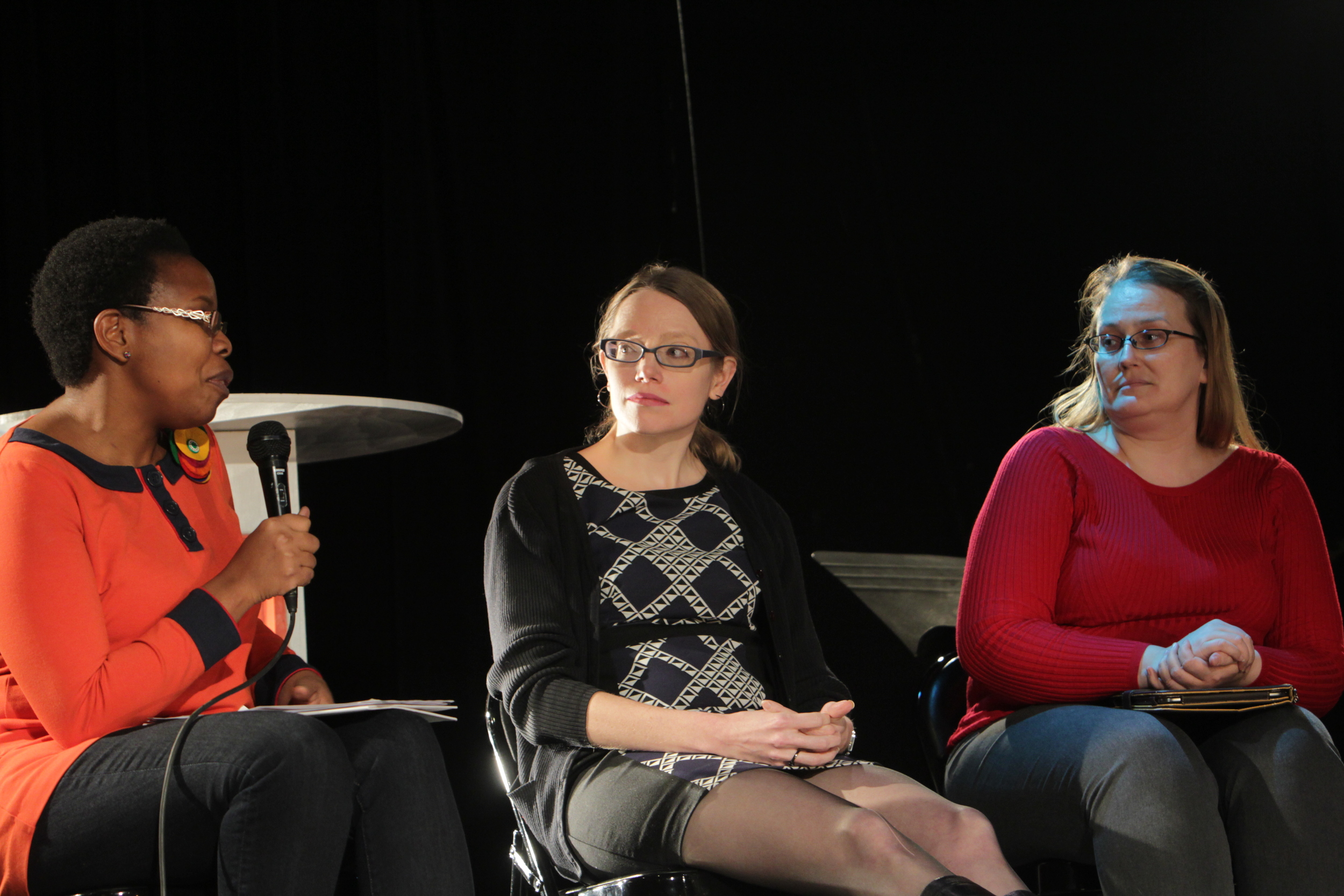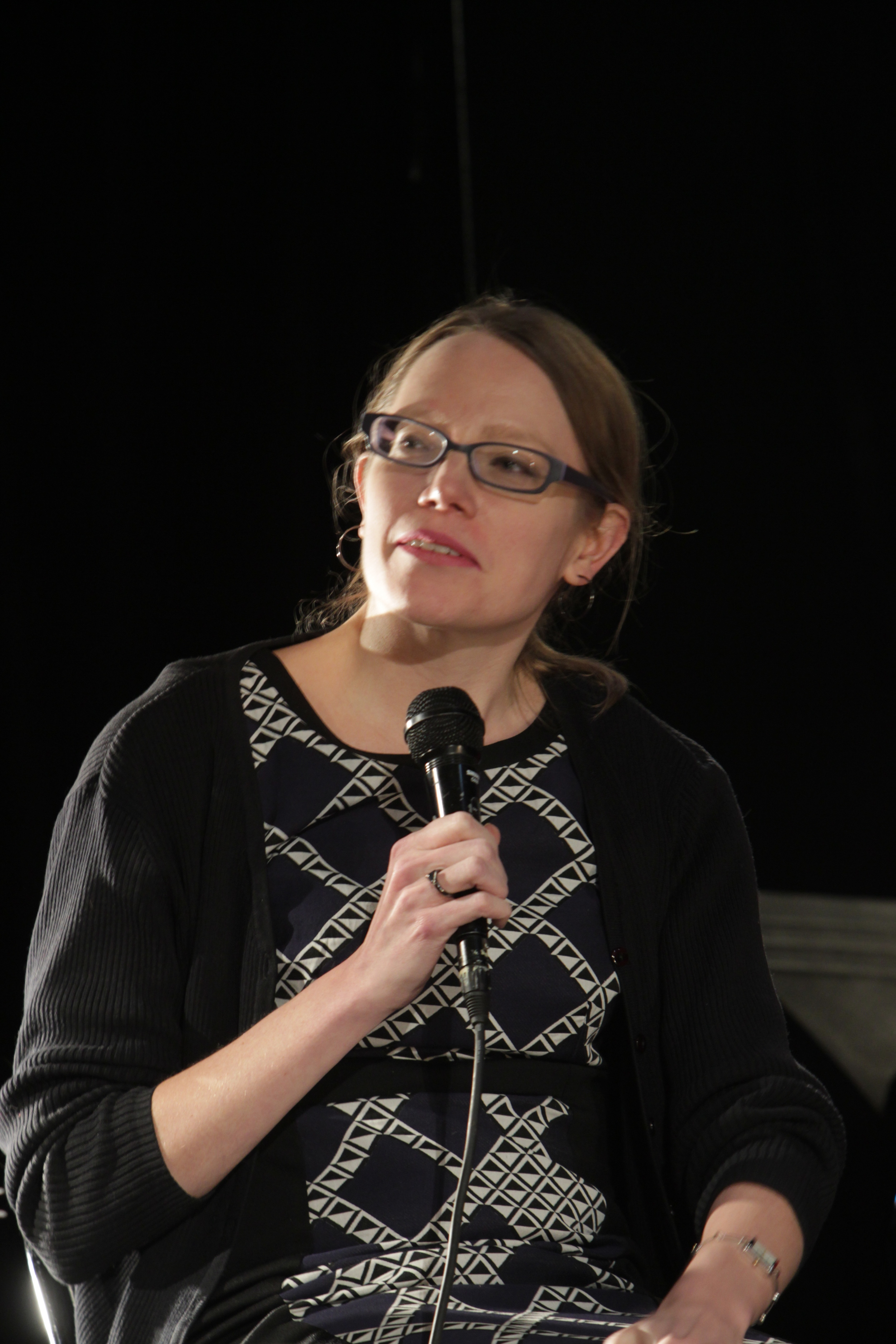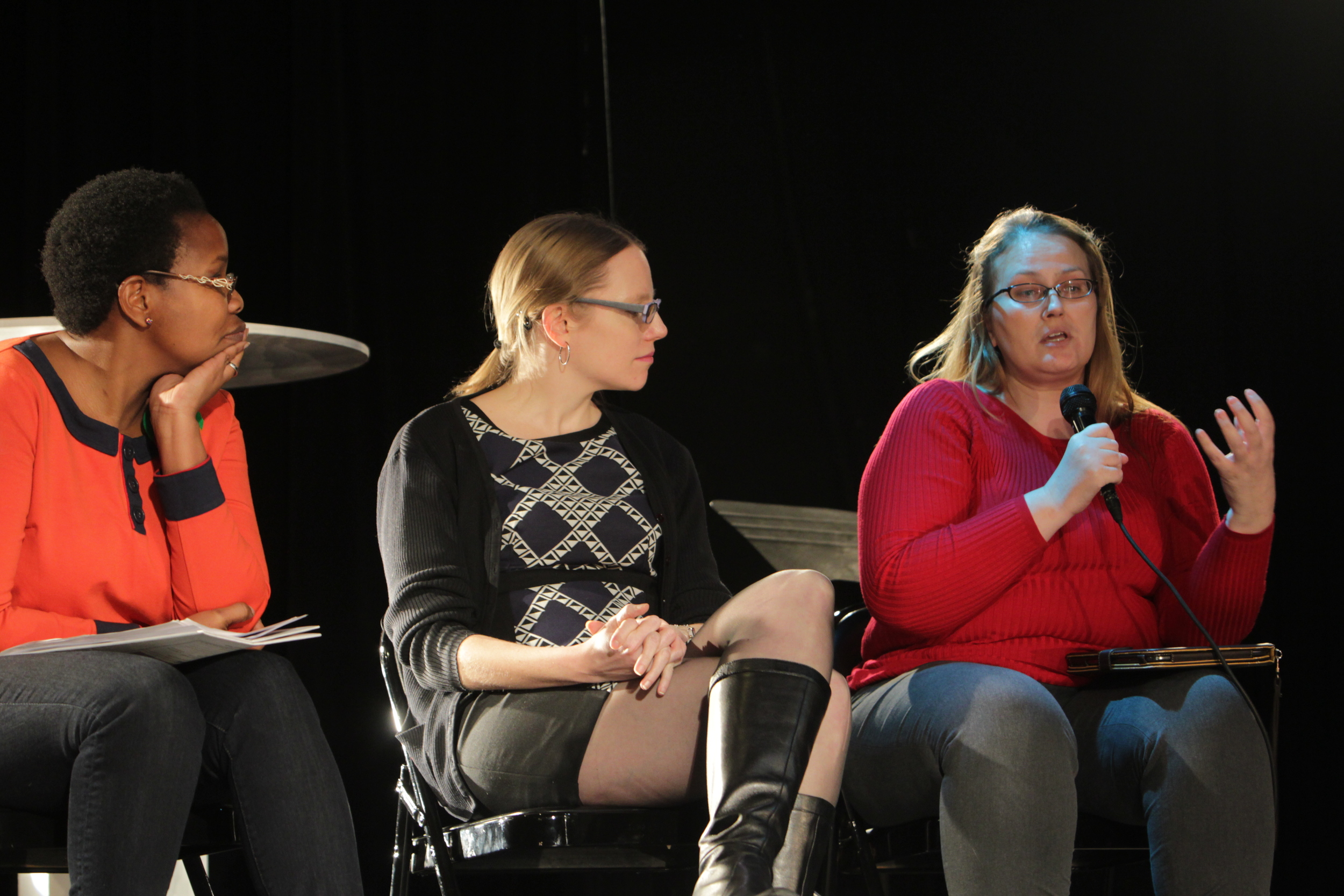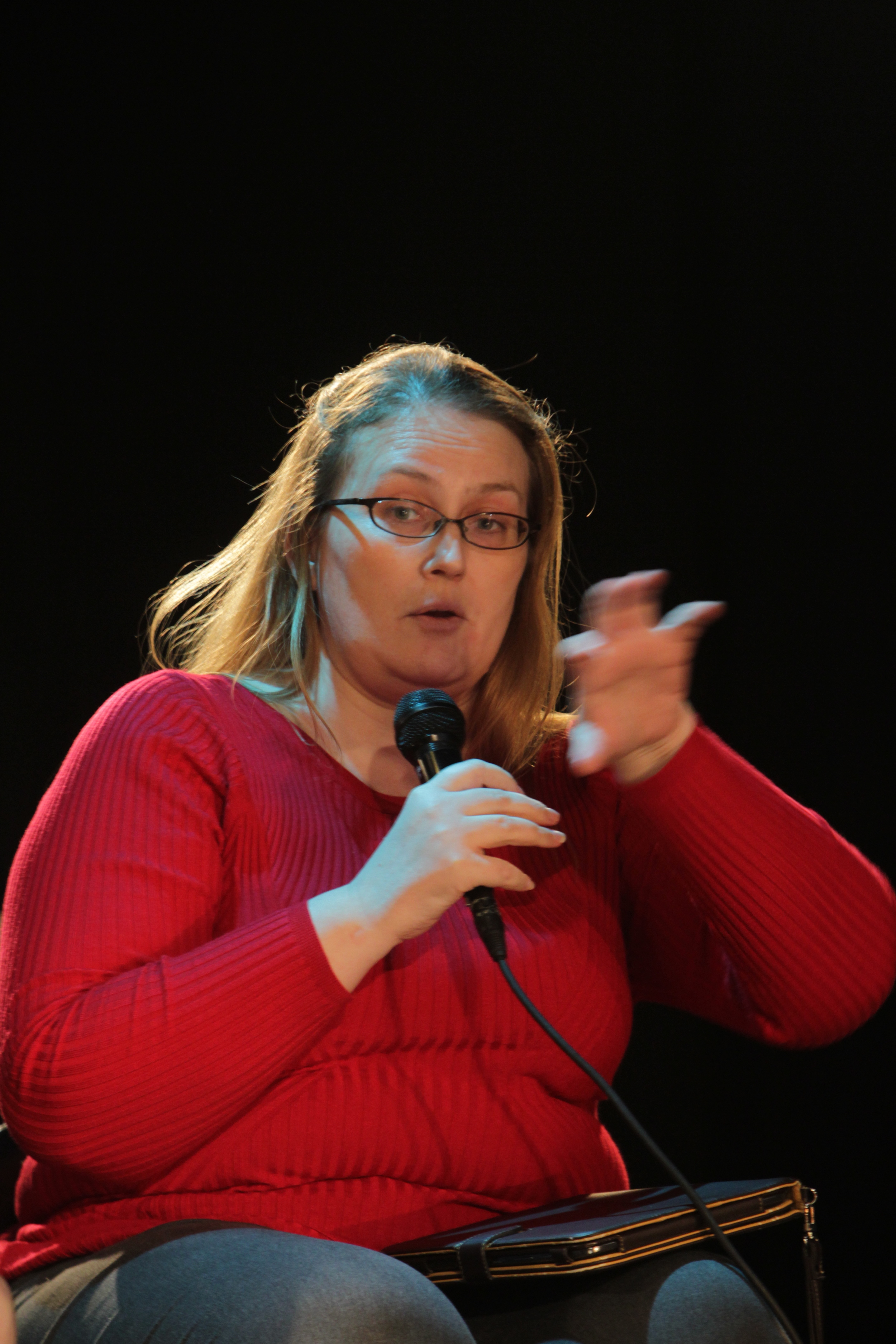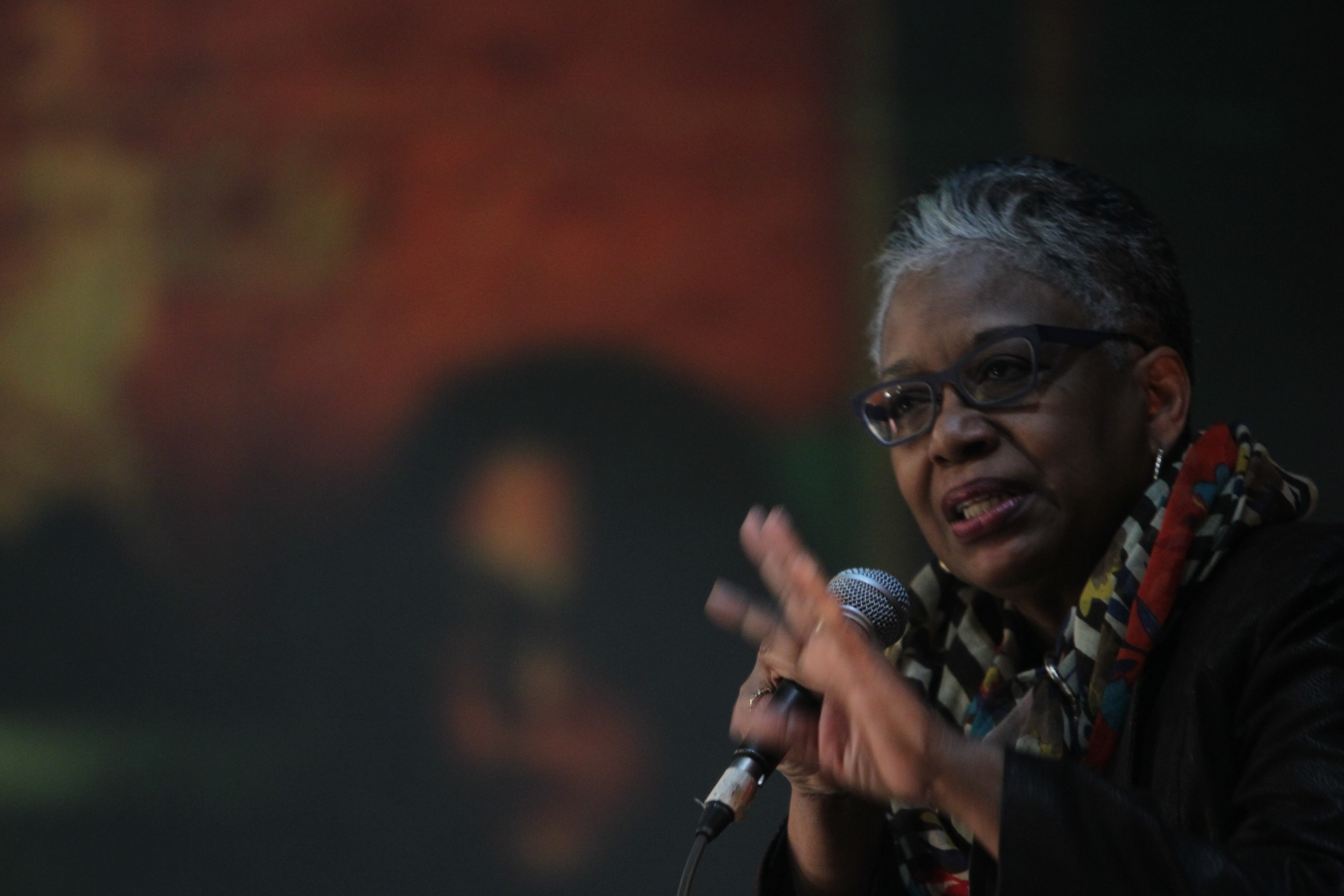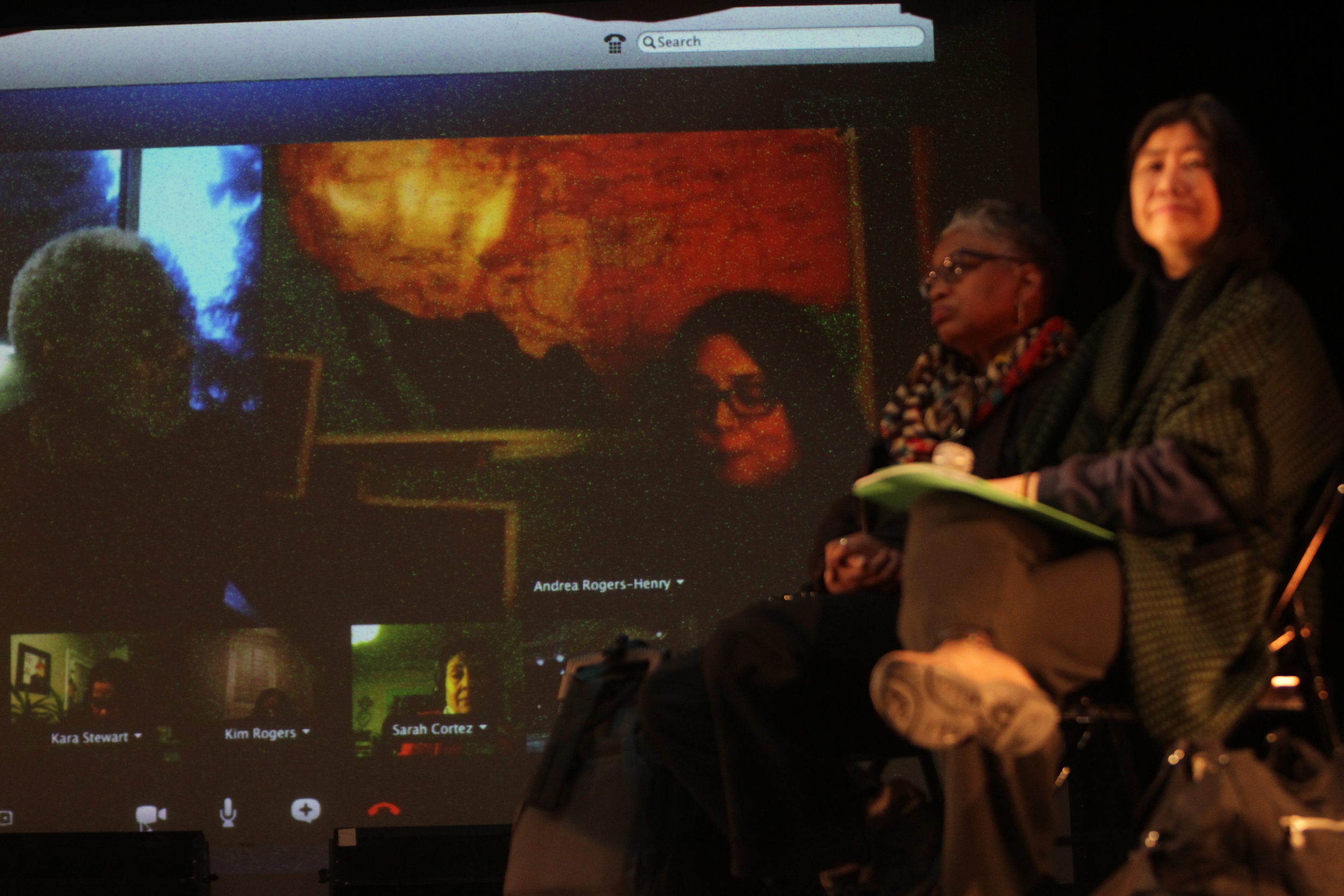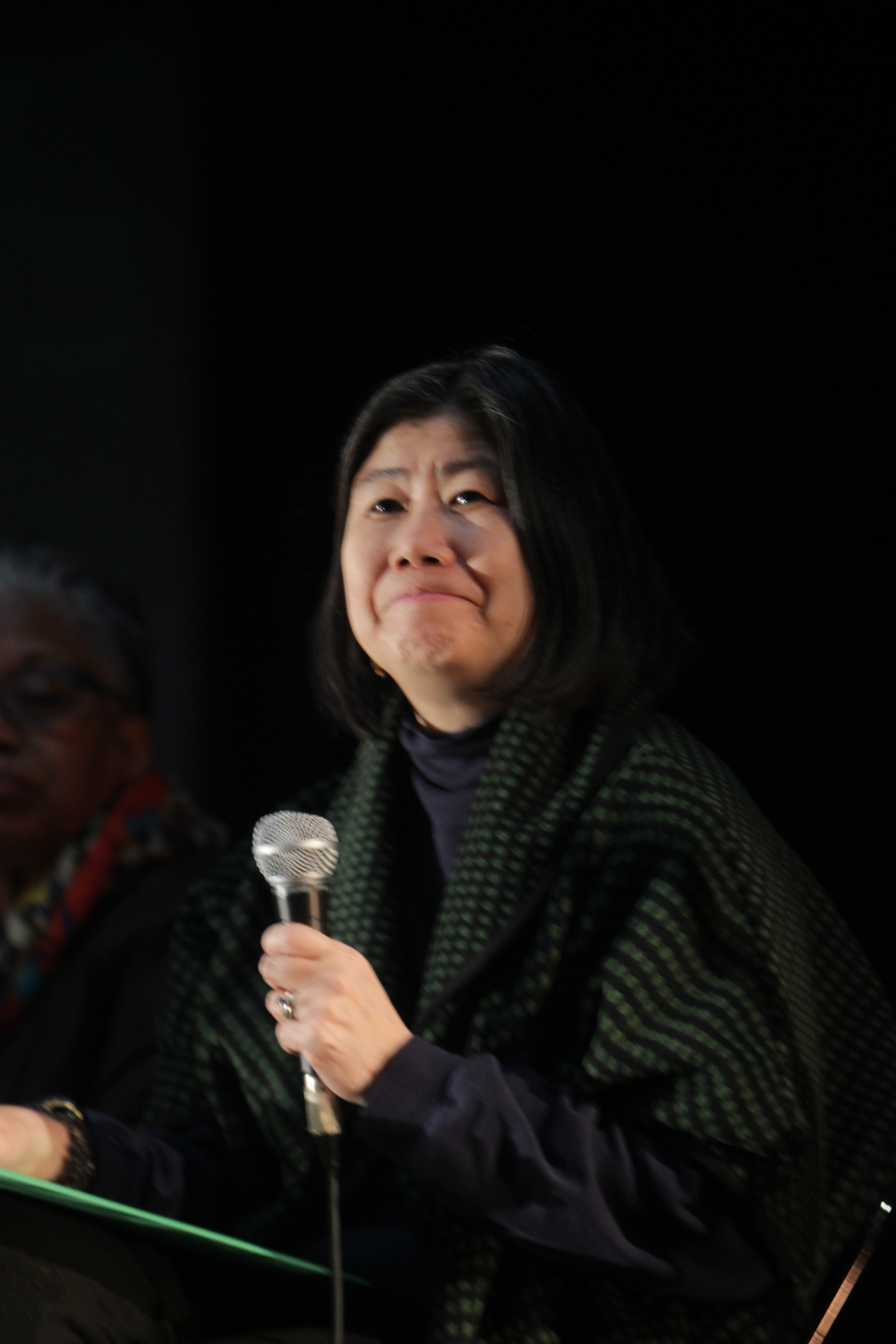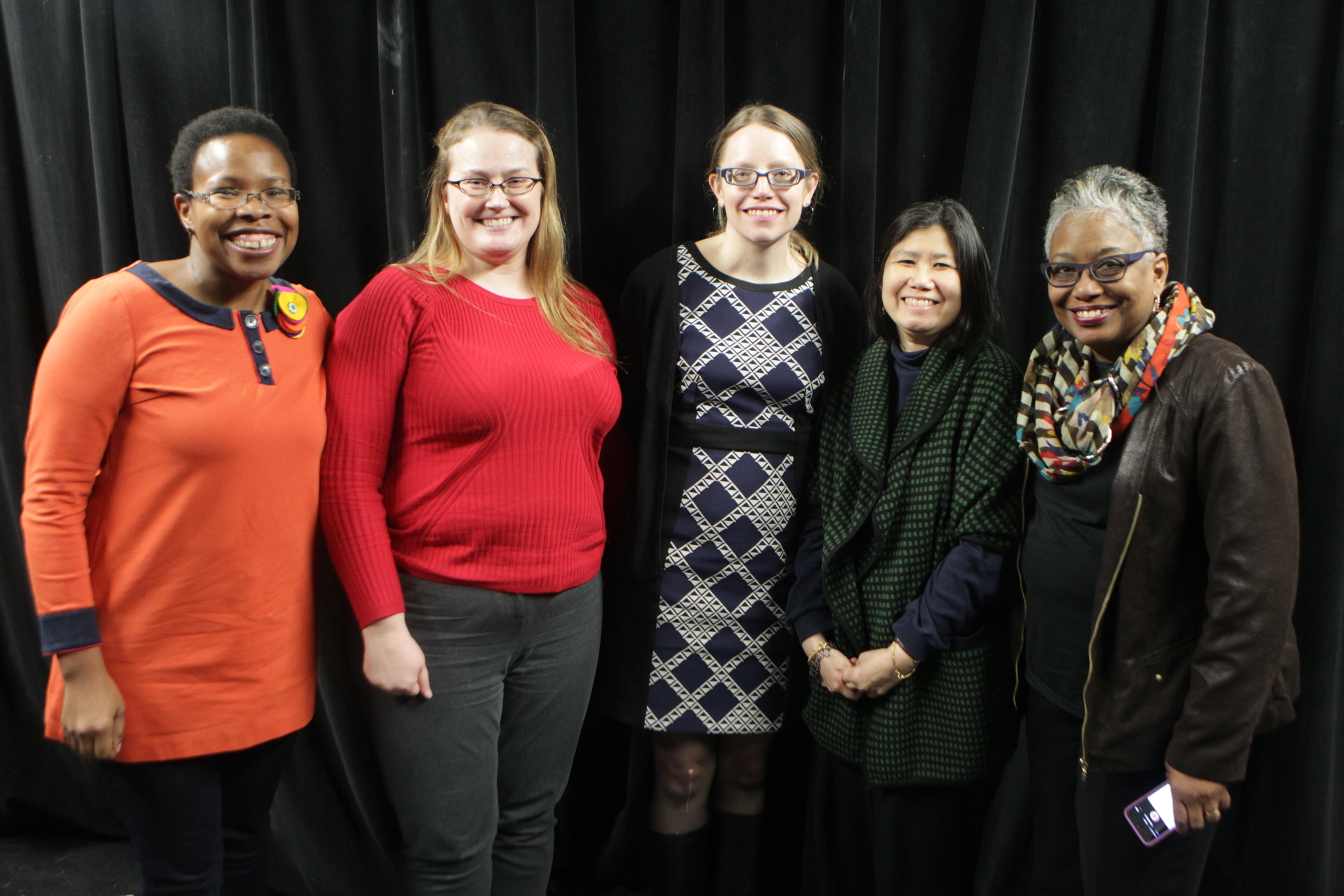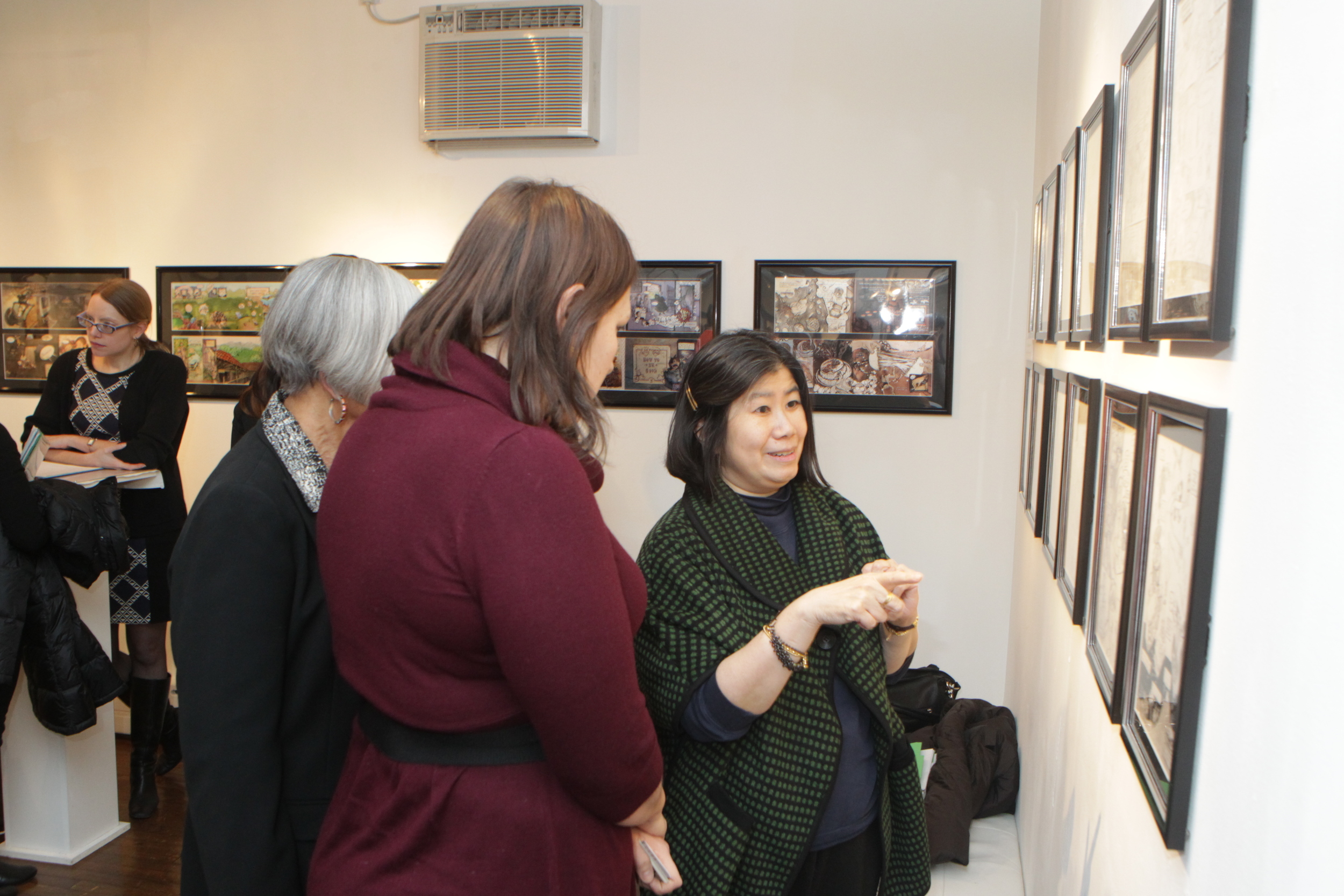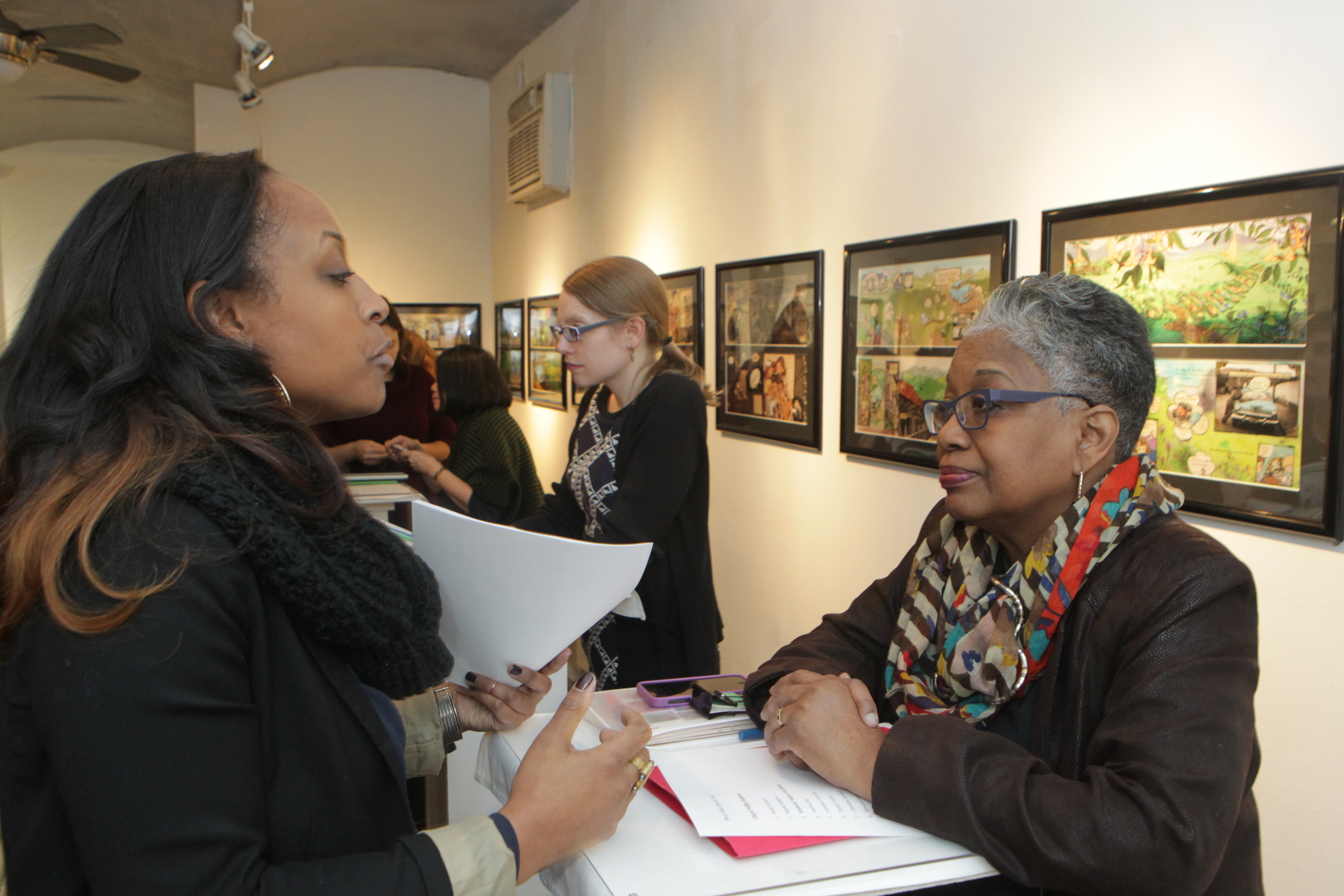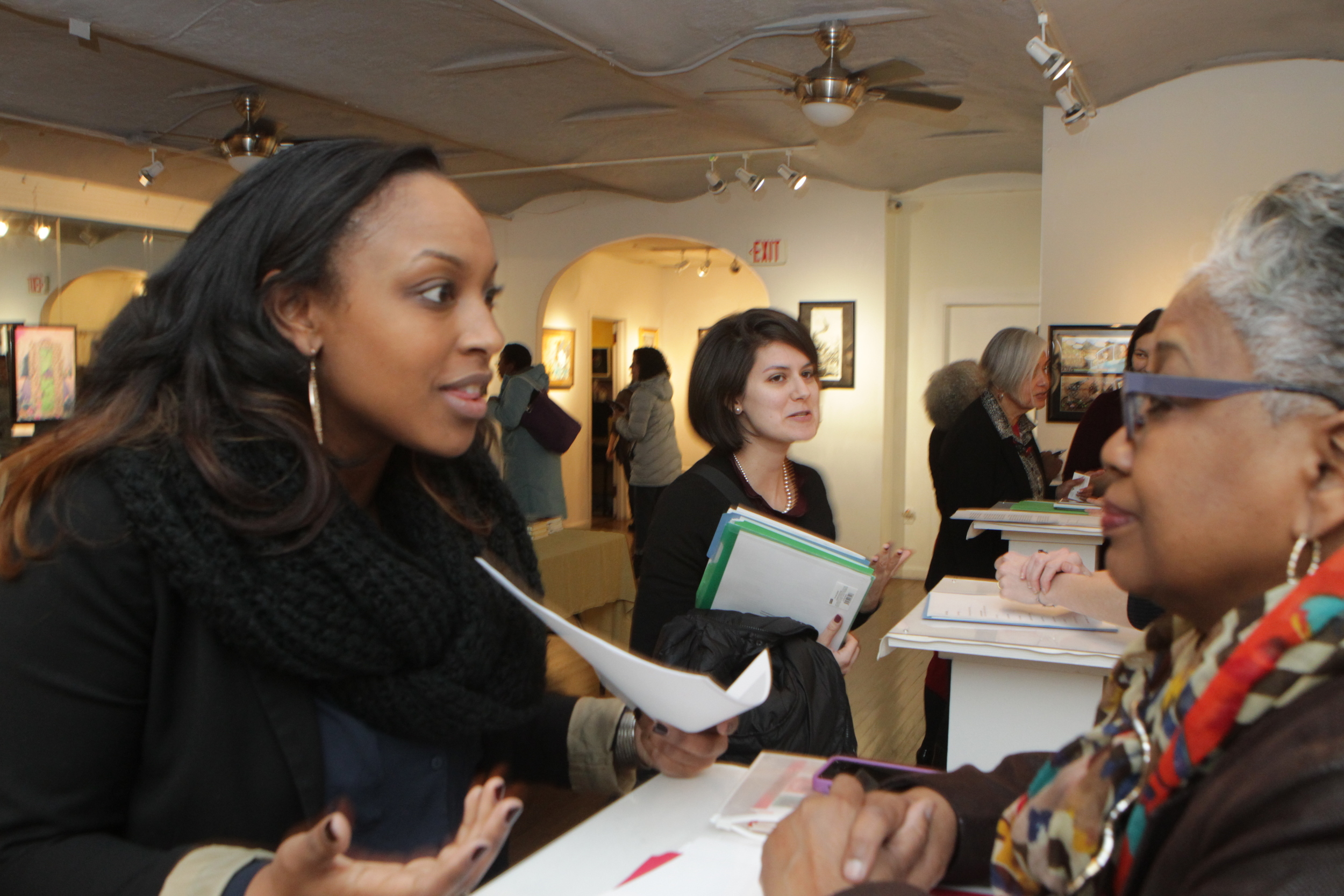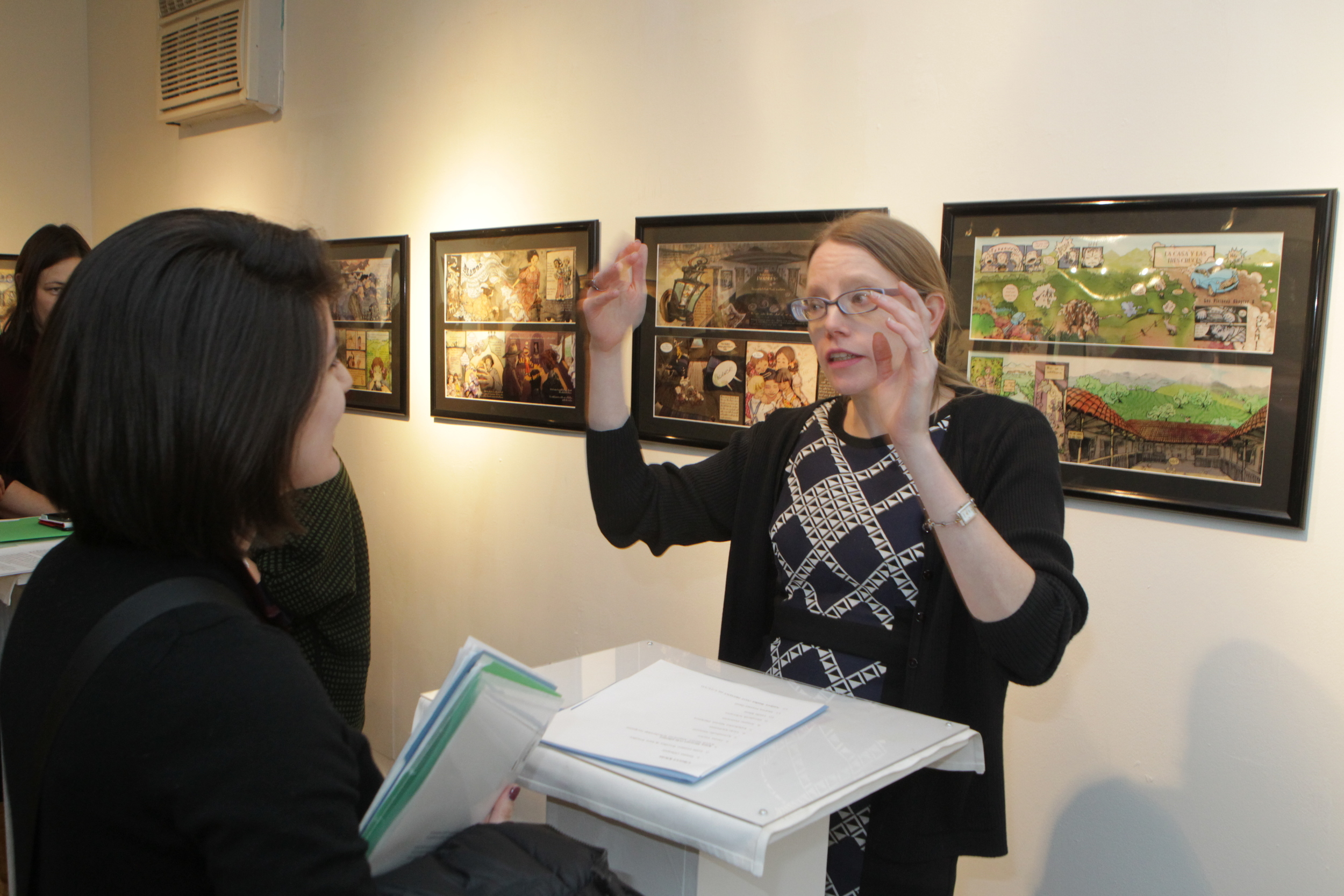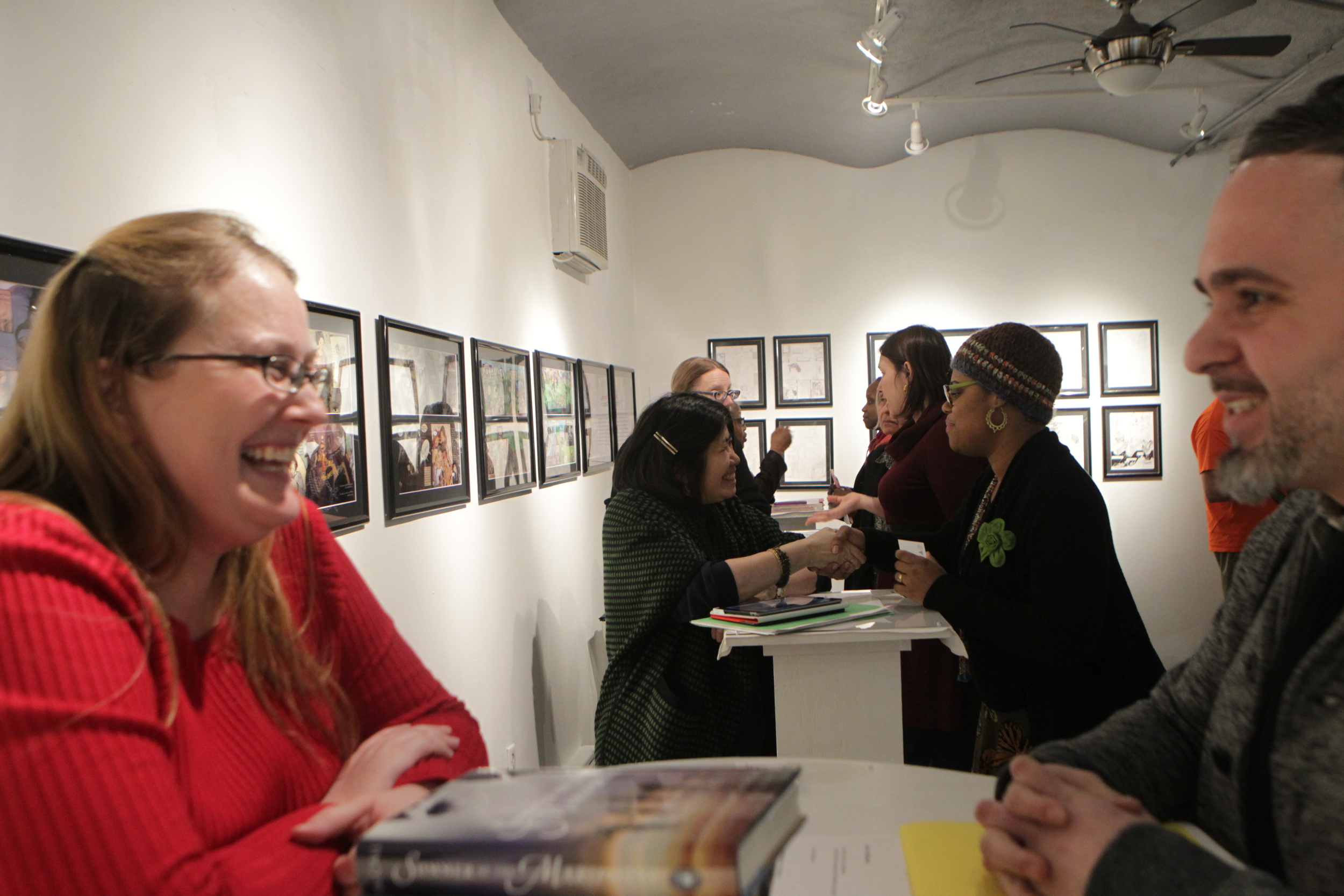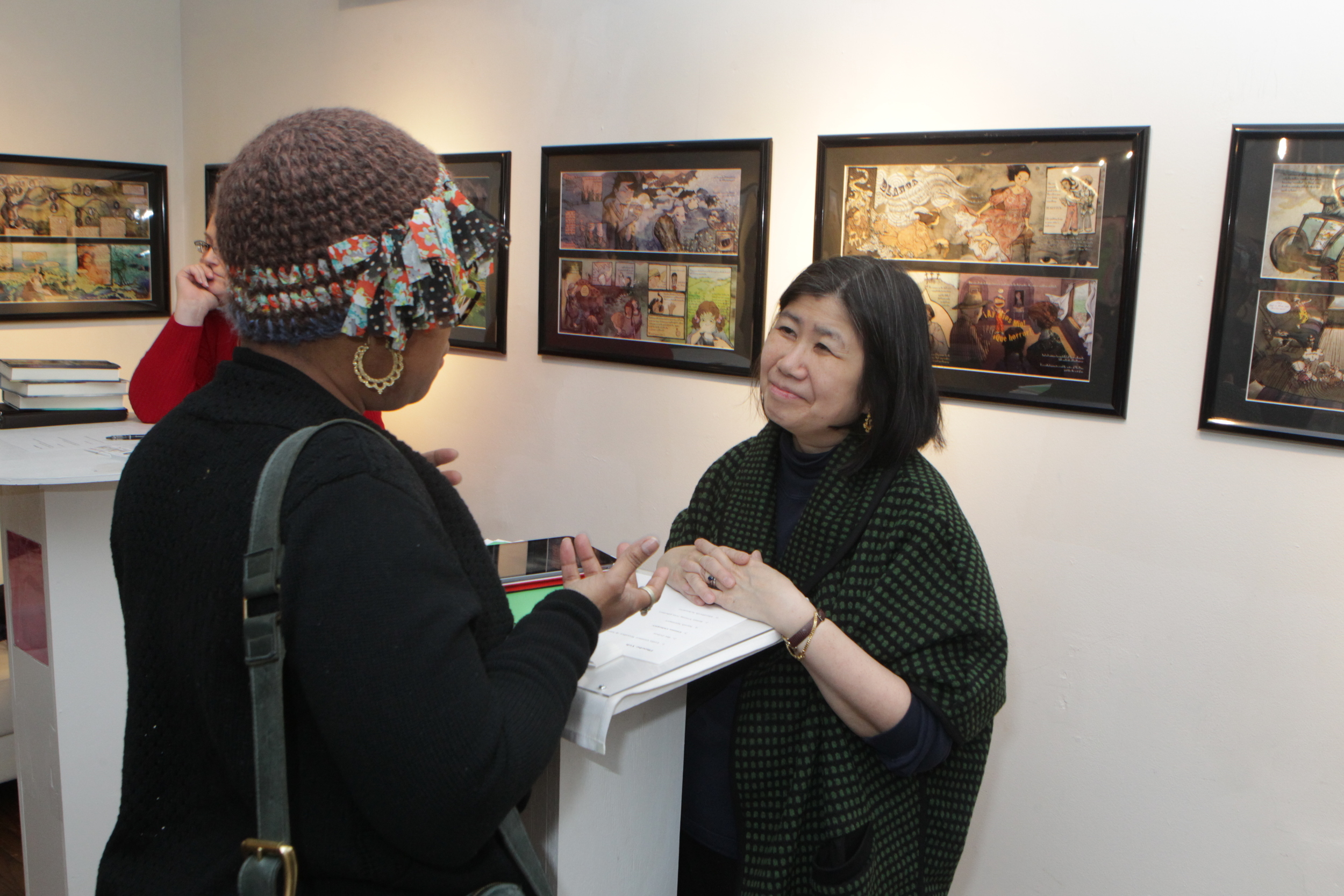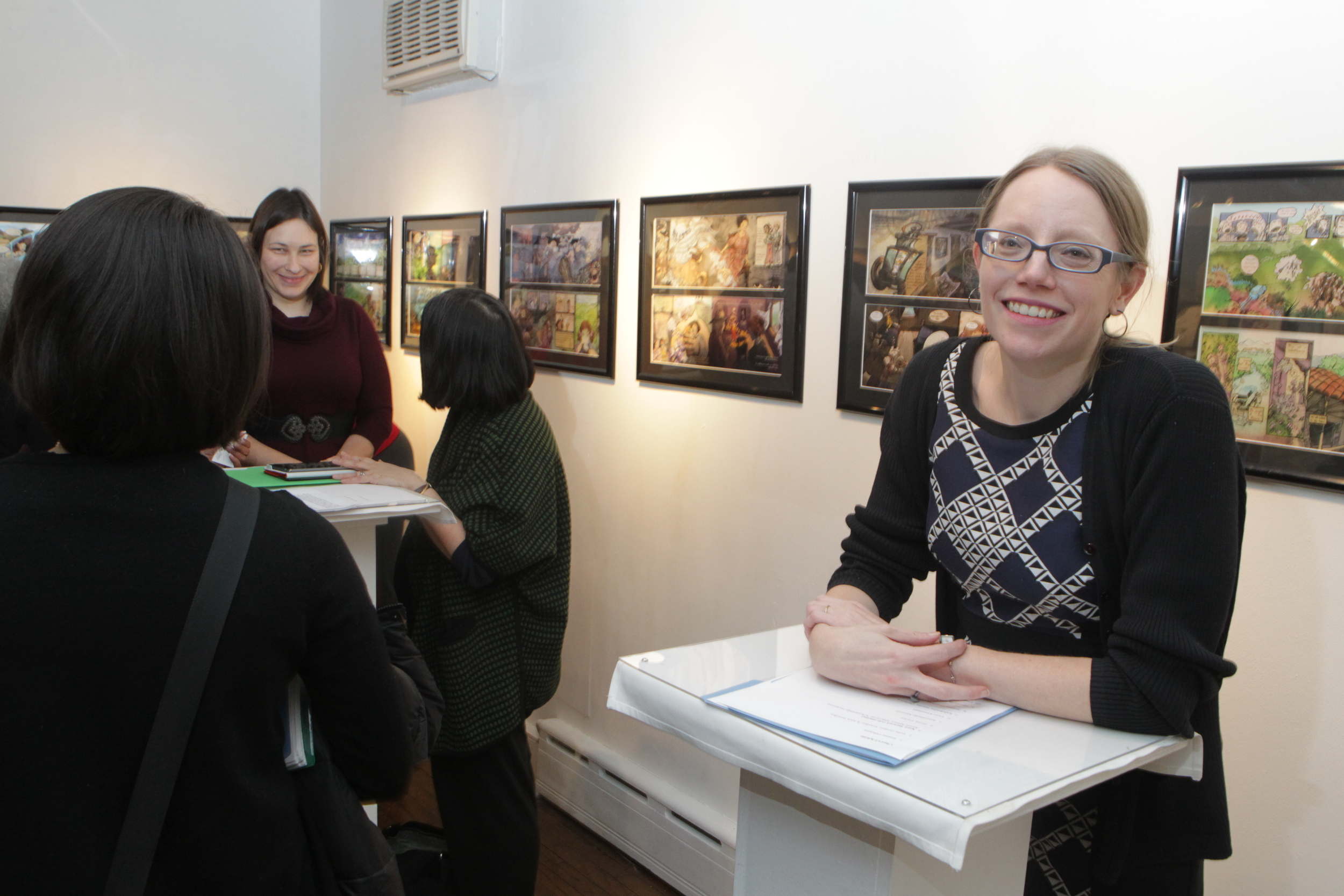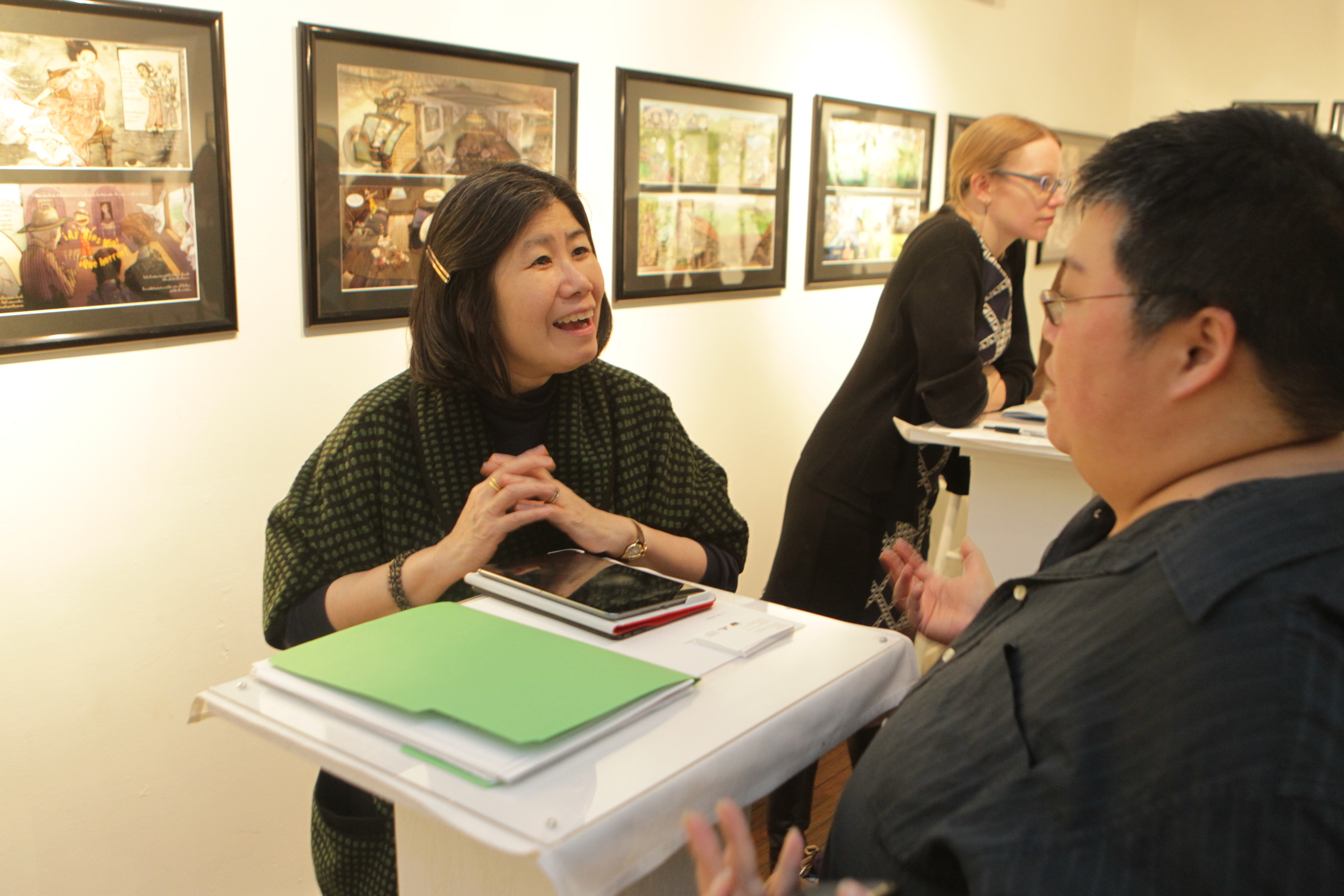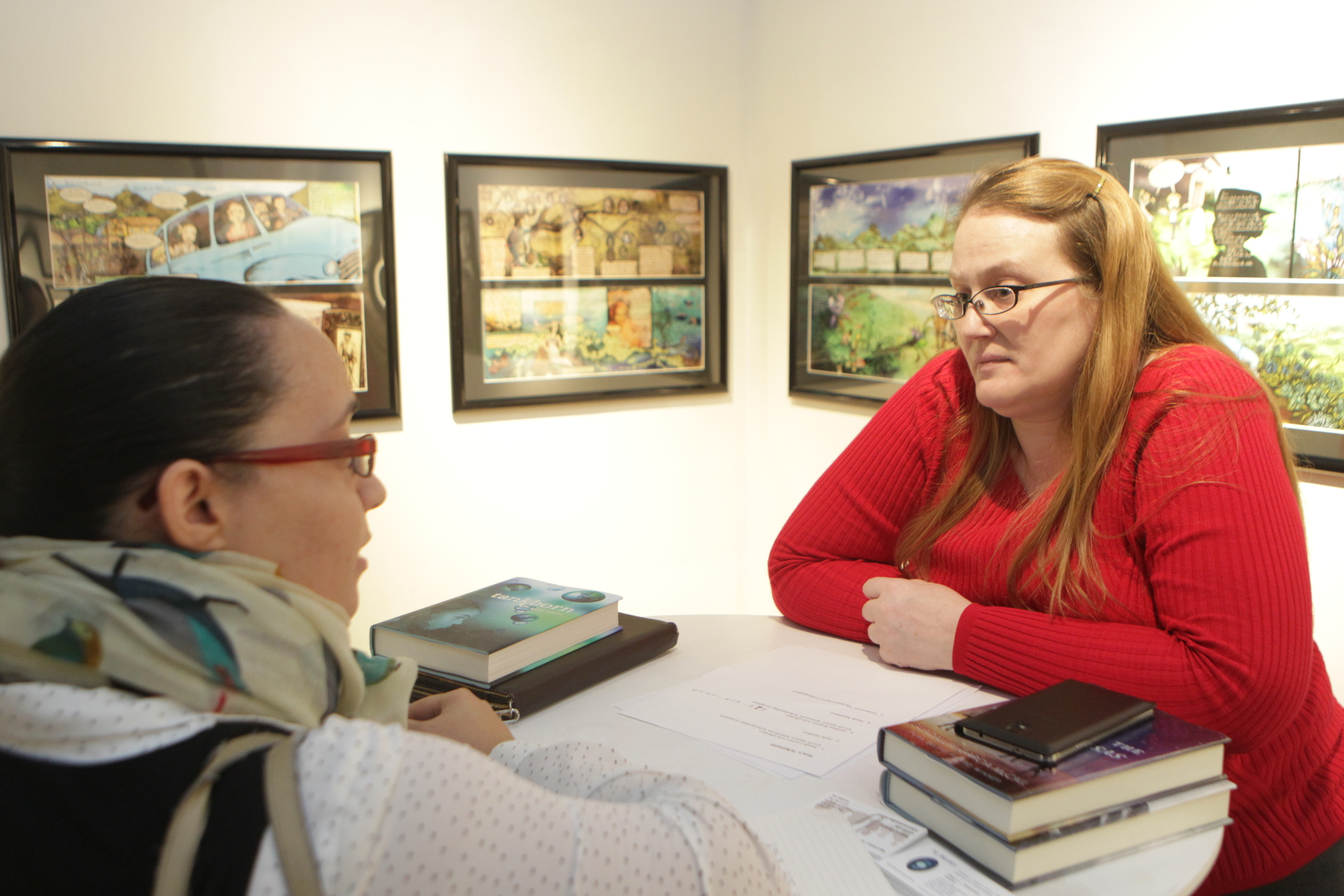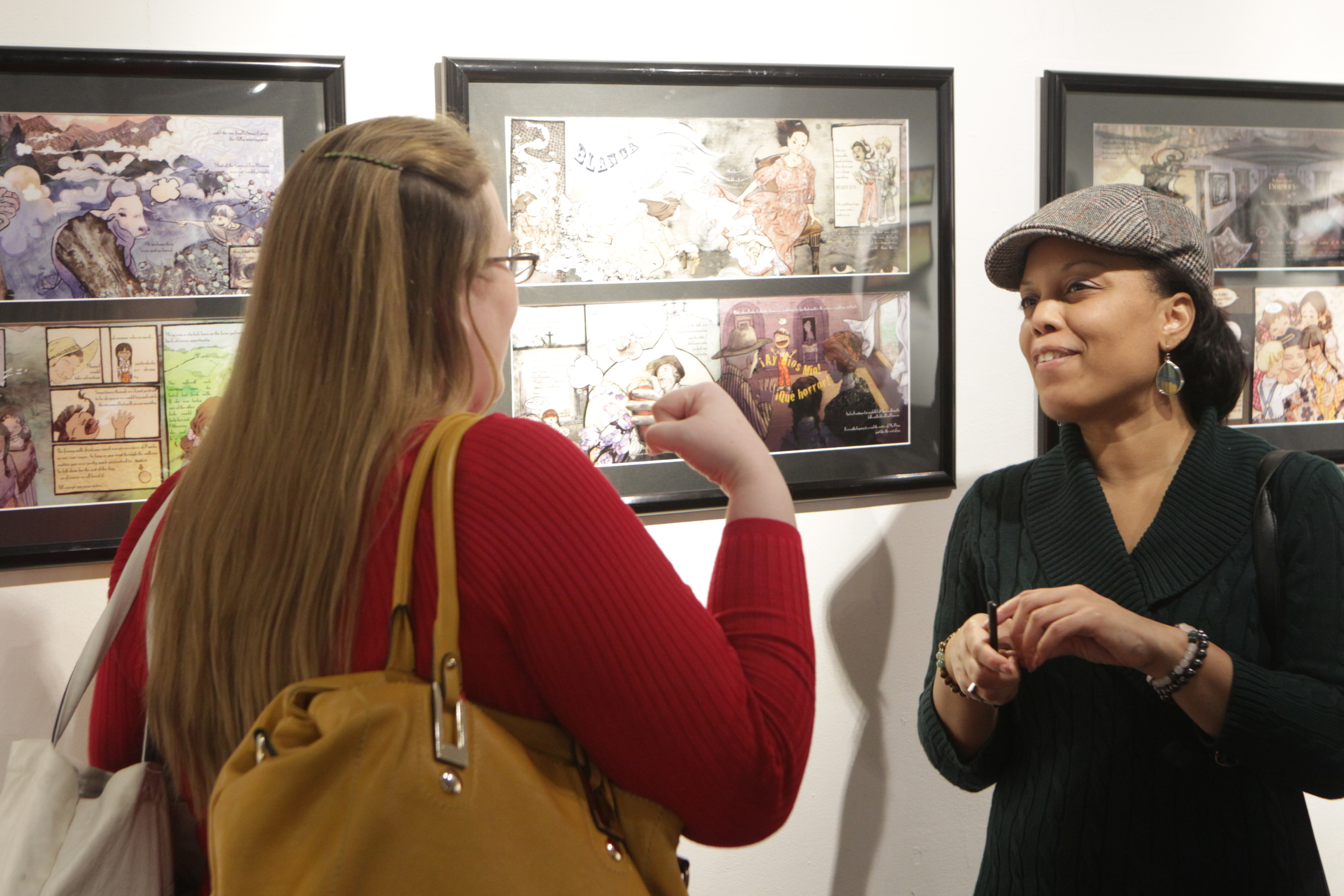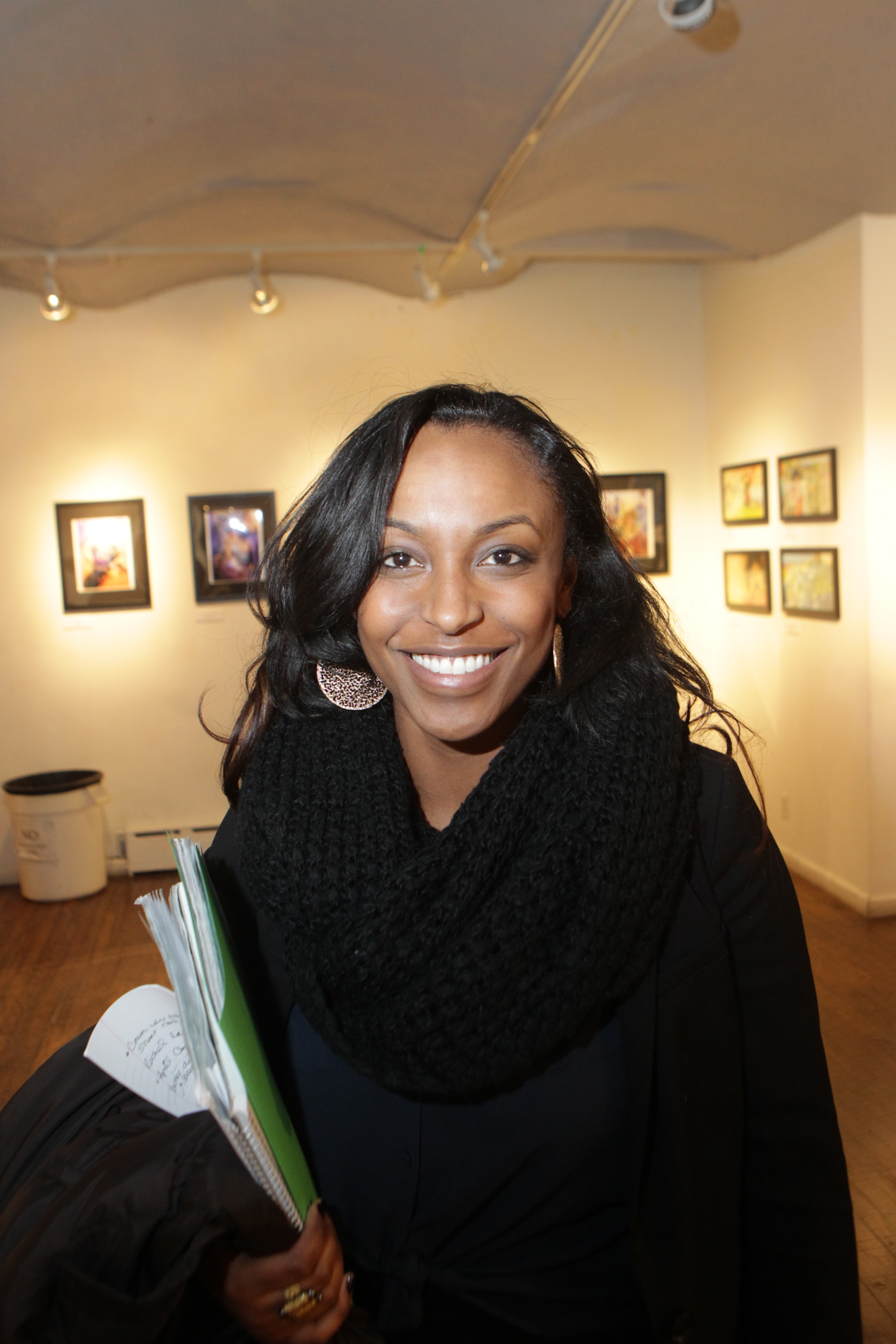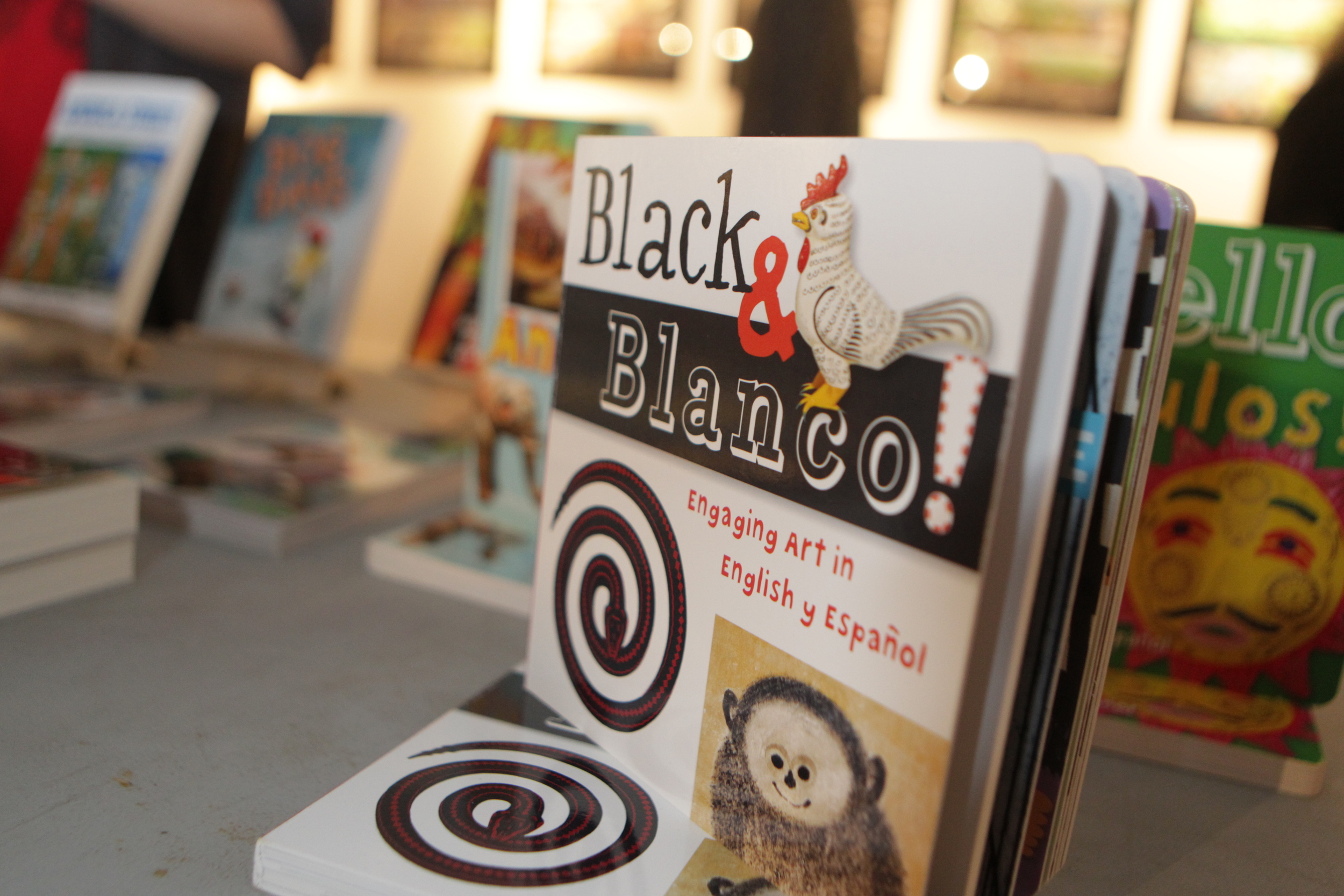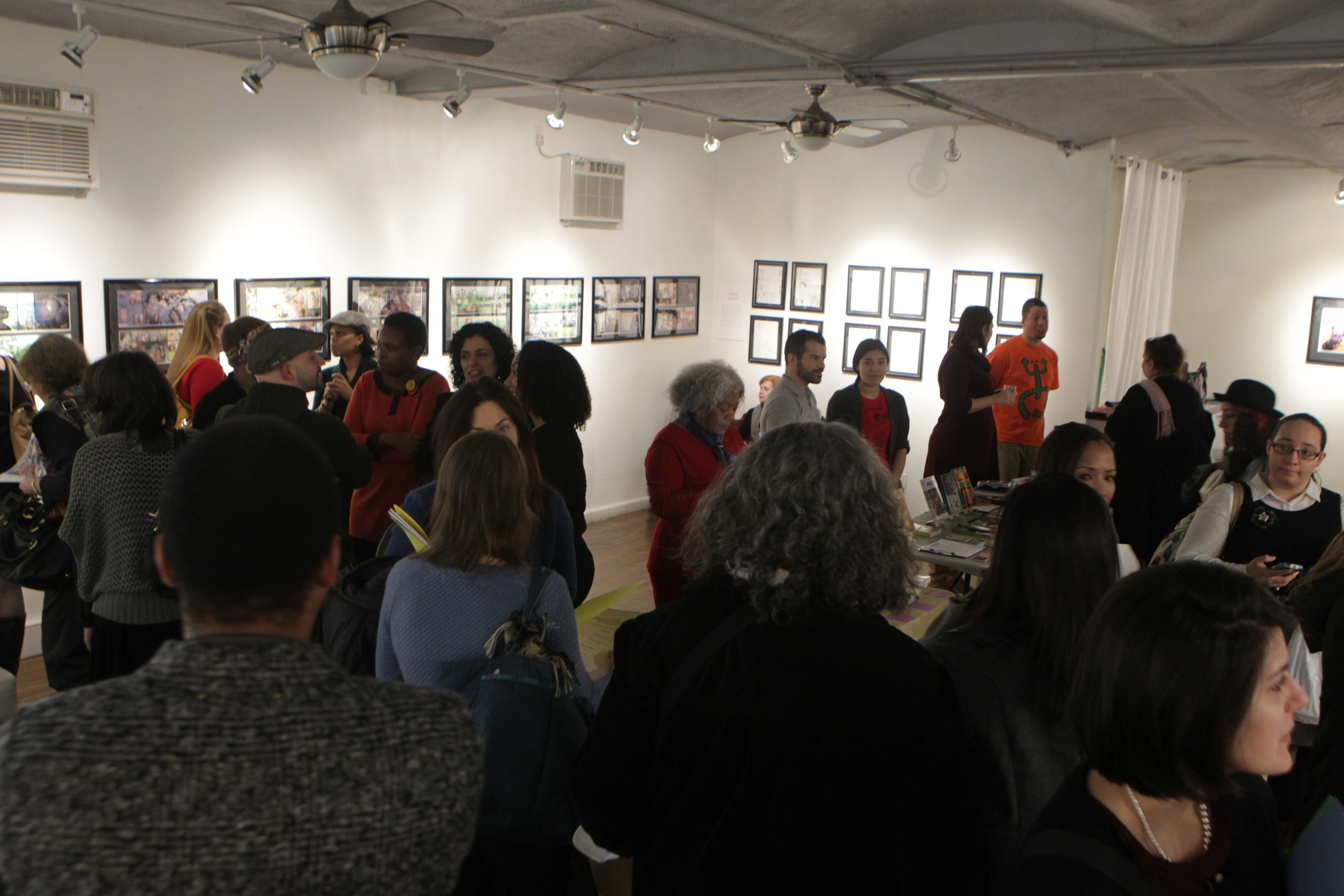Kweli’s First Annual Children’s Book Writers Conference
Wednesday, January 21, 2015
Poet’s Den Theater & Gallery
East Harlem, New York
PANELISTS:
CHERYL WILLIS HUDSON is editorial director of Just Us Books, Inc., an independent publishing company that focuses on Black interest books for children and young adults. Among the books she has edited are THE SECRET OLIVIA TOLD ME by N. Joy, the WILLIMENA RULES! series by Valerie Wilson Wesley, THE AFRO-BETS BOOKS OF BLACK HEROES co-authored by Valerie Wilson Wesley and Wade Hudson, PATH TO MY AFRICAN EYES by Ermila Moodley, and other works. Ms. Hudson is also a children's book author. MY FRIEND MAYA LOVES TO DANCE is her latest work.
CHERYL KLEIN is the executive editor at Arthur A. Levine Books, an imprint of Scholastic Inc. Among the books she has edited are SHADOWSHAPER, by Daniel José Older (in stores June 30, 2015), EIGHTH-GRADE SUPERZERO, by Olugbemisola Rhuday-Perkovich; THE SAVAGE FORTRESS, by Sarwat Chadda; MARCELO IN THE REAL WORLD and THE LAST SUMMER OF THE DEATH WARRIORS, by Francisco X. Stork; OPENLY STRAIGHT, by Bill Konigsberg; and ZOE GETS READY by Bethanie Deeney Murguia. Her book SECOND SIGHT: AN EDITOR’S TALKS ON WRITING, REVISING, AND PUBLISHING BOOKS FOR CHILDREN AND YOUNG ADULTS is now available through Amazon.com.
OLUGBEMISOLA RHUDAY-PERKOVICH is the author of EIGHTH-GRADE SUPERZERO. She has 10+ years in literacy education and youth development work with children, adults, and families. She holds a certificate in the teaching of writing from the Teachers College Reading and Writing Project at Columbia University, an M.A. in Educational Technology and English Education from the Steinhardt School of Education at New York University, and a B.Sc. from Cornell University. She is a member of the Society of Children’s Book Writers and Illustrators (SCBWI), PEN, and the Advisory Board of Epic Change.
STACY WHITMAN is the founder and publisher of Tu Books, an imprint of Lee & Low Books that publishes diverse fantasy, science fiction, and mystery for children and young adults. Books she has edited include Joseph Bruchac’s AILA YA Award and Top Ten Quick Picks title KILLER OF ENEMIES and SUMMER OF THE MARIPOSAS by Guadalupe Garcia McCall, which received a starred review from School Library Journal and has been placed on numerous lists, including the Amelia Bloomer Project, School Library Journal’s Best of 2012 List, and the Lone Star Reading List. She holds a master’s degree in children’s literature from Simmons College.
PHOEBE YEH moved to Random House in June 2013 after seventeen years at Harper Collins Children’s Books. As the new VP/Publisher of Crown Books for Young Readers, Yeh will acquire and publish new books with a focus on middle-grade fiction and narrative nonfiction. From editing the Magic School Bus and the Big Nate series, she knows what kids like and she plans to foster diverse new talent in this vein. Among the books she has edited for Crown are ON A CLEAR DAY by Walter Dean Myers, KATE THE GREAT EXCEPT WHEN SHE’S NOT by Suzy Becker, MY SO-CALLED BOLLYWOOD LIFE by Nisha Sharma, and a new middle grade novel by Diana Abu-Jaber!
EXCERPT from Panel II
CHERYL WILLIS HUDSON: We are publishing more African American books than any of the major publishers. We publish four to six a year, in terms of proportion. But we can’t publish everybody. So it’s very important for writers to be activists and active in promotion of their own work. And I think all of us have to be educators too. I started out in textbooks and there is a great need in textbooks, although there have been a lot of changes in the last forty plus years that I’ve been involved with publishing. But it seems that we start over and over and have the same conversation. In 1990, Phoebe, Walter and I participated in The Multicolored Mirror, an historic Multicultural Literature conference at the University of Wisconsin. There was a contest and we selected and reviewed a lot of manuscripts from aspiring children's book writers and illustrators and selected scholarship winners to attend the conference. So reviewing work is important. Then we have to write book reviews and we have to have review sources.
Time Magazine recently created a list of 100 Best Children’s Books of All Time and 100 Best Young Adult Books. In terms of the best book lists, people put books that they remember from their childhood on these lists. If you were reading and reviewing books from forty, fifty years ago, there were very few if any books with African American characters represented in those books. So we have to change that dynamic in terms of what these “best books” are. All of the best books are not just make-way conductors. I’m not saying they weren’t really good books. But there has got to be a paradigm shift in terms of parents, in terms of school systems, in terms of what we introduce readers to. It’s true that having stereotypical characters in books, or not having a wide range of diverse children represented, or having children absent from the narrative, affects not only children of color, but it also affects children in the so-called dominant culture who see themselves as the carriers of the culture. You simply don’t expect to see anybody else and that’s not good for white children as well. So there’s a lot that needs to be done on a lot of different levels. I say start your own press, get involved in anthologies, get involved in digital books. And I think that’s a great way to expand the conversation because so many more readers have access to those kinds of publications.
STACY WHITMAN: Could I just add one thing that I forgot to mention earlier? One visible thing that I think we need to change is funding for libraries. Forty years ago, when this first big wave came, libraries had the funding to make these books successful. A huge, huge problem is that libraries don’t have that funding now. Schools don’t have that funding now. And we also have to look at 51% of our public school kids now live in poverty and we are now a majority / minority nation in public schools. This year is the first year. All of those factors then come together so that access to these books is really really tough for kids who might not have any other place for accessing books except for their school library, if they have one, or the public library. So being an activist in that manner, in your local community, in your state legislation and make sure that libraries get funded again. That’s a huge deal.
PHOEBE YEH: I want to add to that. It's one of the sad truths about publishing. Your first book has to work so that you can go on to the second book, and it does take a while to build up your career. So what happens is, if the sales from all places—and among them, the libraries—can’t help to support the book, then it just becomes that much harder to keep going on.
I want to share an anecdote with you as well. I am one of the dinosaurs in this room. (laughter) I am a first generation Chinese American and when I started in publishing, my parents did not really know what this thing called publishing was. But they were fine with it. But the one thing my doctor dad kept saying to me was ‘well, there need to be more books by either Chinese people or Chinese Americans.’ And I kept on saying ‘you know what, it’s great that you are a patron of the public library, but you actually can afford to go and buy these books. So I got news for you. Unless you are supporting these books, you’re not going to have them. So go ahead and borrow the book if you want to, but it would actually help yourself out a lot more if you actually plump down the $15 and bought the book.’
Fast forward to what I was sharing earlier. One of the reasons I was very excited to get my own imprint was it did give me a little bit more autonomy about what I could acquire. And one of the first things I tried to do was I looked at my list and said, ‘okay where am I not represented?’ I got very lucky. I’m embarrassed that I didn’t know the work of Diana Abu-Jaber before two years ago. But when I had a chance to read Crescent, I was just blown away by the writing and it turned out that she had written a middle grade novel which we won for Random House. But that is just a very clear cut example. I realized that I never worked with a writer like Diana and here was a chance for me to sort of expand. And that’s another reason why when I received the manuscript My So-Called Bollywood Life from an agent, I was just very engaged with Nisha Sharma's voice and excited about giving an Indian writer a chance for a first book. Again trying to have a more diverse list.
OLUGBEMISOLA RHUDAY PERKOVICH: You gave me a nice segue to my next question which is what are some of the specific things that you are looking for in submissions now, if you’re open to submissions. Are there any particular stories you’d be really excited to see? Then on the flip side, what are some of your pet peeves when it comes to submissions?
CHERYL KLEIN: I’m not starting this time. (audience laughter)
STACY WHITMAN: So I have been looking for an Asian steampunk for three years and have yet to be taken up on it. I would love really anything—and this actually could apply to African American writers and/or writers anywhere within the African diaspora—taking steampunk, which is a very popular perennial topic, and looking beyond the Victorian lens (i.e., looking to come from the colonized perspective rather than the colonialist perspective). It would be really interesting to see a Latino steampunk kind of story in that same way. I’ve been looking for something that tackles the problematic nature of steampunk in a really fun, adventurous way and I haven’t yet found the right title, so I’ve been asking for that for a while. And just in general, anything African American and/or set in Africa and/or anywhere in the diaspora, particularly fantasy because I just haven’t found the right title yet that has gone all the way through the process. We do so few books a year, you can just look at our list at Tu Books. Say where the gaps are, pitch it to me and I’d probably be interested. Science fiction, fantasy, mystery, historical fiction as long as it’s not hitting the places that have been covered so many times, like civil rights, slavery, unless it handles it in a completely new way. I’d love to see a slavery narrative that has a fantastic element that isn’t time travel because that’s been done so many times. I am looking for all of these things and it needs to be literary as well, with an easy hook. For example, I would describe Killer of Enemies by Joseph Bruchac as post-apocalyptic Apache steampunk. It’s a lot of fun, so it’s really easy to hook librarians and to hook teachers because they know this is something their kids are going to be really excited about.
CHERYL KLEIN: Okay, I’ll go. (audience laughter) I can talk more easily about the quality of things I am looking for, than specific things I’m looking for. I’m always looking for books that have really good characters and a voice I can work with and a plot I can sell. And by that I mean sort of again a plot that has a hook to it, but also a plot that has a defined great first scene, or great first two or three chapters, and then a big climax. I love books that have a big idea to it. To talk about a different kind of diversity, one of the books I published last year was called Openly Straight by a writer named Bill Konigsberg. It’s about a boy who is gay and has been out since he was in the 8th grade, and he gets tired of living in Colorado and being known as the gay kid at his school. So he decides to start over in a different school where he will be openly straight. So it is a pretty interesting take on being gay, the modern age of gay fatigue and all those things. But it’s also more than that. It’s a novel about identity and how, if you are lucky to be able to do this, how you get to prioritize your identities. What are the different labels that define us and can you step outside of those? And I was so excited to see him thinking about those big subjects within a very relatable plot of a YA novel. And so I love seeing qualities like that. I love seeing pretty much all genres—maybe a little less historical fiction—and you can look at the Arthur A. Levine Books website to get a sense of the things that we publish and what we are looking for. Our submissions guidelines are on there.
CHERYL WILLIS HUDSON: I can speak more to what we are not looking for, and that is books on slavery or another book on Martin Luther King—who I love and adore and respect. But Just Us Books has been able to do something a little bit different in terms of the niche of the market. One of the books we published was Afrobets Book of Black Heroes from A to Z and it was one of the first books in this age that was done. There were 48 heroes rather than one, rather than George Washington Carver, or Booker T. Washington or Martin Luther King. So if there is a biography of a hero who may be an unsung hero, that’s what we would be interested in doing for middle grade. I think part of our strength is picture books. Although we are not taking submissions for picture books right now, we are looking for a joyous picture book that just shows an African American child being a child without necessarily having the baggage of proving that he’s black. I’m not completely against didacticism in a stylized way because I think telling stories in the African tradition is being somewhat didactic, but we like to avoid stories that just hit you across the head. I think that’s a sure way to bore a lot of children. Children are looking for fantasy and ways that they can expand their imagination. We look for really wonderful use of language too. Children in this age are influenced by so many visuals and so much music and video, I think there is a different kind of sensibility in terms of language. So if you have something that is very literary in a picture book, we would like to publish that.
PHOEBE YEH: I think that I talked a little bit about my list at Crown Books already, but what I would add is this: I think that you are entitled to write about what you want to write. I think some authors of color want to write realistic stories, but I also encourage diverse authors and tell them if you want to write the next Watership Down, you should go ahead and do it. I’m reminded of a series I started at Harper called The School for Good and Evil. Some people may know that the author was Asian Indian (Soman Chainani) and I did say to someone, ‘you know it doesn’t matter.’ But I bet an Asian Indian kid who is reading his novel obviously might recognize the name as Indian, but even if he or she didn’t, I think there is something in the texture of the writing that they might guess. And that’s fine. But Soman Chainani wrote a fantasy. So I think part of the conversation we’re having tonight, and the ongoing conversations we’re going to have, is about ghettoization. You don’t want to be ghettoized. And I don’t want to ghettoize the authors I work with and the books that I publish at Random House. That needs to be a part of the conversation too.
OLUGBEMISOLA RHUDAY PERKOVICH: Thank you. What craft book, community, tool or particular conference would you recommend to aspiring authors and illustrators?
CHERYL KLEIN: I do recommend the NY Metro at SCBWI. It’s a great, very active chapter and they get lots of editors in because they’re here in NY. So if you join that’s great.
I also recommend my two very favorite craft books, besides my own (Second Sight: An Editor's Talks on Writing, Revising, and Publishing Books for Children and Young Adults). The first craft book is Orson Scott Card’s Characters and Viewpoints. Find it in the library or buy it used. Characters and Viewpoints is a fantastic book for developing characters. And Writing Irresistible Kidlit by Mary Kole is a great sort of primer for writing children’s YA, and where does my book fit and what are the genres and so forth.
STACY WHITMAN: I want to encourage you to think of social media not as a time-waster, but as a place to learn, to learn from writers who are out there publishing now, talking about their craft left and right on Facebook, Twitter, their blogs. Sometimes they’ll even be talking about their process on Instagram. If you want to be a part of the conversation about diversity issues, check out #WeNeedDiverseBooks hashtag and so forth. There are so many ways that you can be a part of this conversation online. You can be a teacher and be a learner, just depending on where you’re at. Just don’t look at it as a time waster. Look at it as a place where you can take some time off from practicing to have a graduate course in whatever you want to learn about without going to a graduate course that you are paying for.
CHERYL WILLIS HUDSON: In terms of the history of African American children’s literature, I would recommend a book by Rudine Sims Bishop called Free Within Ourselves, and I do recommend that you buy it so that she can get the royalties. As a scholar and as an advocate for African American literature for children, and just in terms of her knowledge base of multicultural children’s books in general, she’s right at the top of that. One of her more notable essays is "Mirrors, Windows, and Sliding Glass Doors."
"Mirrors, Windows, and Sliding Glass Doors" by Rudine Sims Bishop
PHOEBE YEH: Speaking about conferences, BEA is coming up and BookCon is on May 30 and May 31, 2015. I think it would be really valuable if you go to the Javits Center, listen to authors speak, listen to the different panels.
The book I would mention tonight—and it is fitting that we would talk about a book by the one and only Walter—is called Just Write: Here’s How! After he was made National Ambassador for Young People’s Literature, that was my opportunity to go to my publisher and say ‘let’s please publish this book already.’ Basically I had traveled all over the country with Walter. We went to the Bronx, we went to juvenile facilities together and I listened to him talk to kids about writing and his method. He self-published a pamphlet that he distributed and he said ‘here is my four box outline for writing fiction, and my six box outline for nonfiction’ (or it might have been reversed). But basically he said if you want to be a writer, here’s how. So he wrote this primer and it was really for kids, but I found that when I was talking to first time writers, I said you know, check out Walter’s book because he has very simple and easy explanations for when you have a writer’s block, for example. Here is what he did and it might work for you. So you might find his book helpful.
For a great book about the editor / author process, I recommend Dear Genius, the Letters of Ursula Nordstrom. She was really one of a kind. She published such classics as Maurice Sendak’s Where the Wild Things Are, Margaret Wise Brown’s Good Night Moon, and Shel Silverstein’s The Giving Tree. I think she was the first person to publish a book about a gay character. She was just a brilliant editor and publisher. And from the letters that she wrote to her authors and agents, you’ll learn a lot about what a positive relationship with an editor should be. (laughter)
STACY WHITMAN: Also, Cheryl probably won’t mention this herself, but her website is very very good. The Plot Checklist from her Second Sight book is in your conference folders and I actually give it to all my writers who are struggling with that rising action, so I basically steal from Cheryl whenever necessary. And speaking of podcasts, Writing Excuses is a podcast run by Brandon Sanderson, Dan Wells, Mary Robinette Kowal and Howard Tayler. They write fantasy and science fiction, some for YA and some for adult, but it is actually general craft and their motto is ‘15 minutes long, because you’re in a hurry and we’re not that smart.’ So it’s really a bite size way of saying “okay, I am going to listen to this podcast for 15 minutes” and then they give you a prompt at the end and send you on your way.
CHERYL WILLIS HUDSON: There is one other, on the first Saturday of every month. Betsy (Elizabeth) Bird does a Children’s Literary Salon (a monthly gathering of children’s book enthusiasts) at the New York Public Library (NYPL) on different topics. She offers a lot of interesting topics on process and you can also meet authors and find out how they work. I think that it is the first Saturday of each month and you can check the website of the NYPL for more details.
CHERYL KLEIN: I will piggy back on both of those to say that yes, I actually have a podcast of my own called the Narrative Breakdown. Back in November, Stacy and I were on it because we did the Children’s Literary Salon at the NYPL to discuss two books that we published by Native American authors. So that is available as a podcast on www.narrativebreakdown.com.
The Editing and Publishing of Native American Young Adult Literature, October 14, 2014
And if you look back through our archives there are also episodes on middle grade fiction, point of view, all sorts of different writing topics. We cover a different topic every month or so. So, lots of resources.
Here are some of my favorite Narrative Breakdown episodes.
How to Build an Effective Scene
Revision Techniques
Subtext
Beyond the Basics with E. Lockhart (point of view, complex narrative structures, etc.)
Middle Grade Fiction with Author-Editor Jill Santopolo
Query Letter
OLUGBEMISOLA RHUDAY PERKOVICH: Thank you to all of you. There will be a fifteen minute break before the one-on-one pitch sessions begin.
